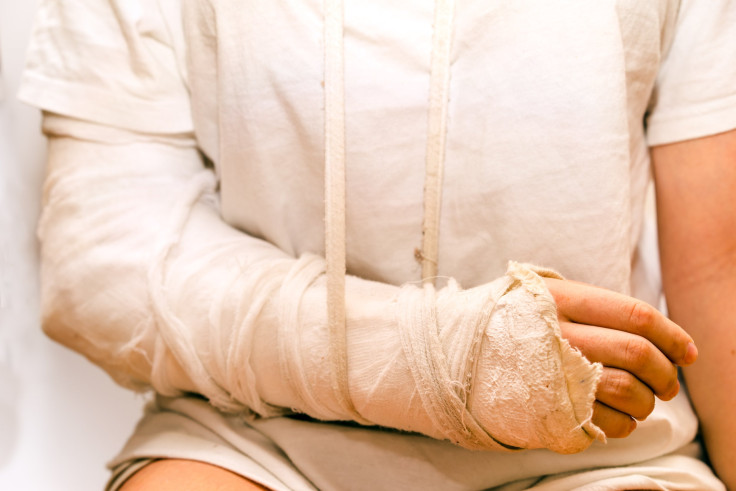Putting On Weight Won’t Protect You From Fractures: Both Losing And Gaining Pounds Increases Your Risk

If you’ve been gaining or losing weight recently, you might be at a higher risk of getting a fracture, according to a new study published in the BMJ. That risk may be even higher if you’re an older, postmenopausal woman, possibly due to an increased likelihood for osteoporosis and brittle bones.
Previously, weight gain had been considered a form of protection against fractures, since more layers of skin and fat around bones serve a protective purpose; meanwhile, low body weight made bones more susceptible to breaking. But this study proves that weight gain isn’t always protective, especially if it’s excessive. In fact, obesity increases the risk for fracture in certain parts of the body.
Bone fractures can be the consequence of high impact trauma or stress to a limb, as well as the influence of medical conditions that wear away at the bones, like osteoporosis, bone cancer, or osteogenesis imperfect.
Researchers wanted to better understand how intentional and unintentional weight loss or gain impacted the incidence of fractures in older women. They examined 120,000 healthy postmenopausal women in the Women’s Health Initiative Observational Study and Clinical Trials, who were all aged 50 to 79 and were followed for about 11 years. Every year, the participants were weighed and reported any fractures in the wrist, elbow, hand, upper arm, shoulder, foot, knee, upper leg, ankle, hip, pelvis, and spine. The data also recorded any changes in body weight — labelling participants as stable (any change less than five percent from original weight), weight loss (a decrease of five percent or more), or weight gain (an increase of five percent or more from original weight).
The researchers found that compared with stable weight, weight loss was linked to a 65 percent increase in hip fracture, a nine percent increase in upper limb fracture, and a 30 percent increase in central body fracture. They also found that any weight gain led to a 10 percent increase in upper limb fractures, as well as an 18 percent increase in lower limb factures compared to women who maintained a stable weight.
So even if you’re on a diet and exercise plan to help you lose weight, be aware that even intentional weight loss — or weight gain — can make you more vulnerable to bone fractures in various spots, especially for women. The results of the research “have clinical and research implications and challenge the traditional clinical paradigm of weight gain protecting against fractures,” the authors write. “Clinicians should be aware that even intentional weight loss is associated with increased rates of lower limb fractures. Weight loss intervention trials should consider potential effects on the incidence of fracture.”
Source: Crandall C, Yildiz V, Wactawski-Wende J, Johnson K, Chen Z, Going S. Postmenopausal weight change and incidence of fracture: post hoc findings from Women’s Health Initiative Observational Study and Clinical Trials. BMJ . 2015.



























